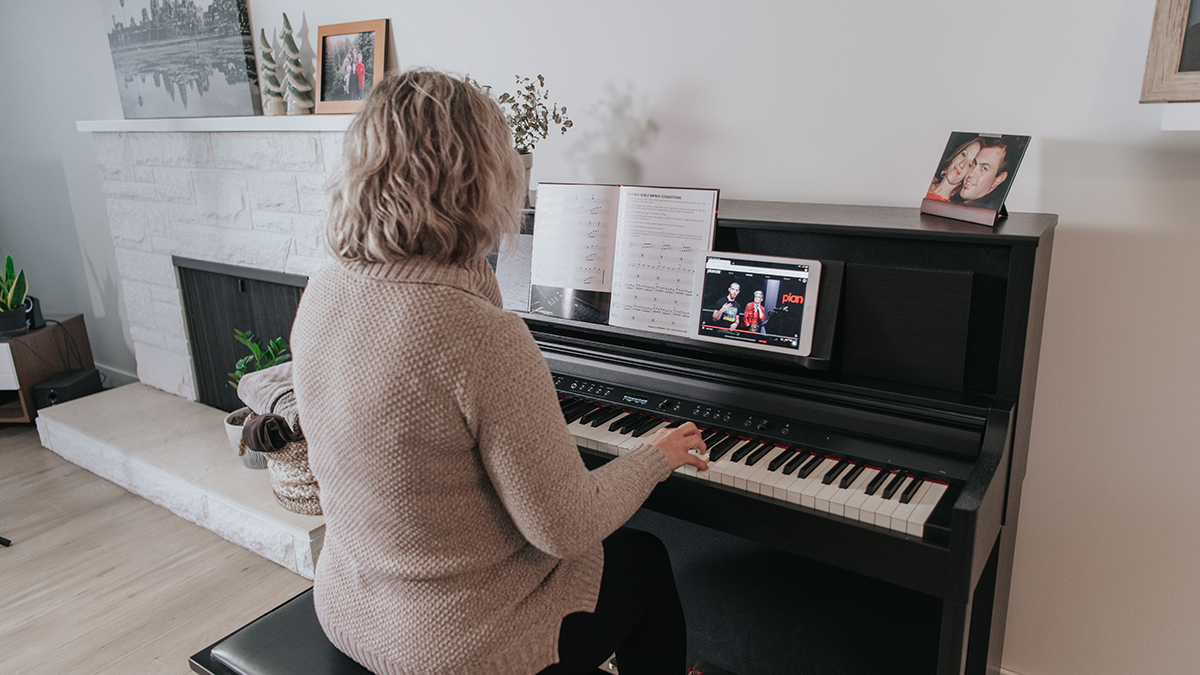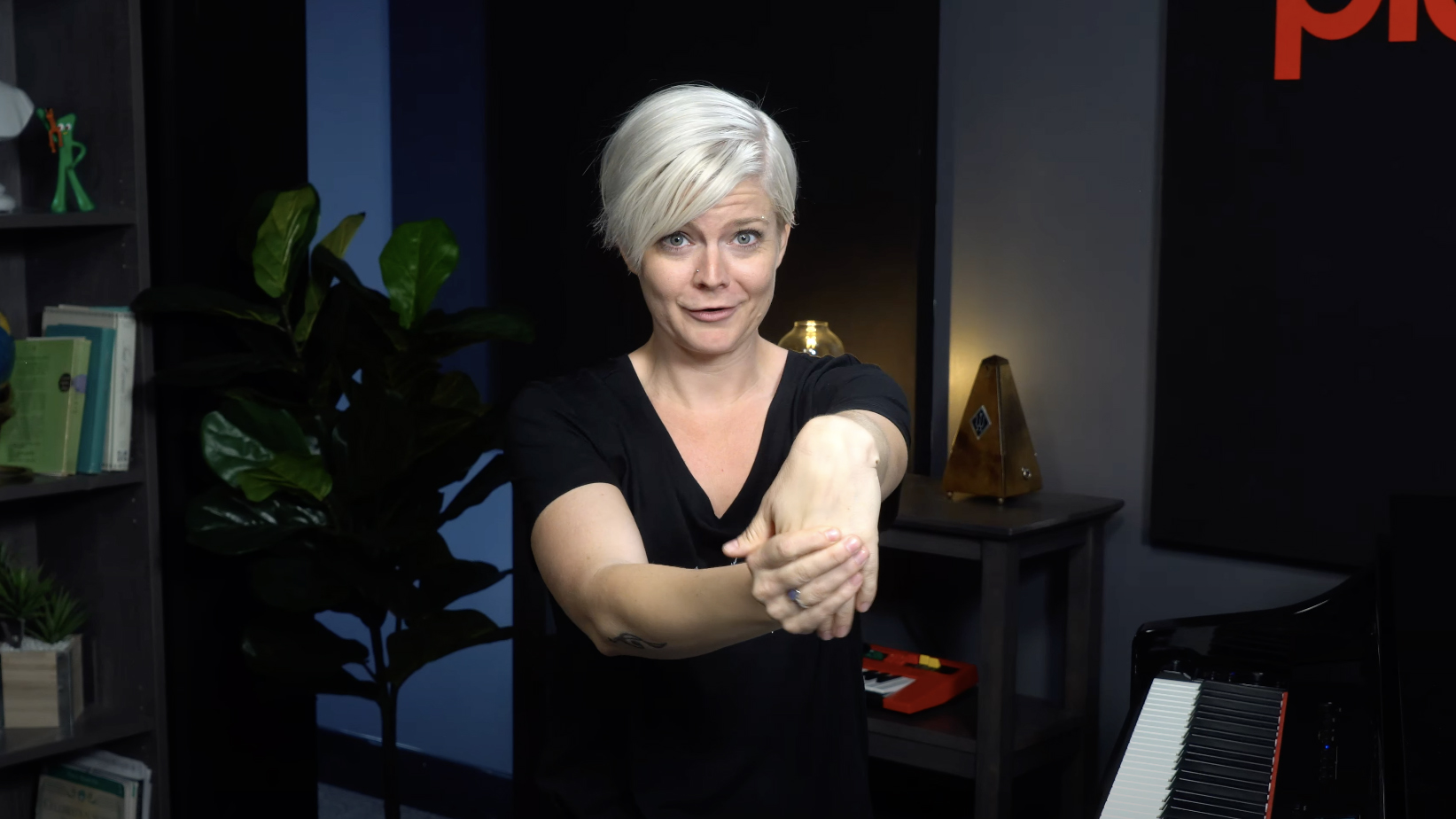6 common mistakes all piano players make
…and how to fix them
Want all the hottest music and gear news, reviews, deals, features and more, direct to your inbox? Sign up here.
You are now subscribed
Your newsletter sign-up was successful
In this video lesson from online piano lessons platform Pianote, tutor Lisa Witt identifies 6 common mistakes all piano players make at some point along their journey. It doesn’t matter whether you’re a beginner keyboard player, or a digital piano pro, these will catch everyone out at some point or other.

Pianote delivers quality online piano tuition for beginner to pro players, led by expert tutors. Content includes a step-by-step curriculum, playalong songs, live sessions and personal feedback from Pianote coaches. Try Pianote for 7 days totally free.
Thankfully, everything Lisa discusses is totally fixable with a little focus and planning. Making these few changes to your approach to the piano could mean the different between life-long, pain-free playing, and feeling frustrated and giving up before you’ve really got started.
In this lesson, Lisa will guide you through each common mistake, with handy solutions for each one. You can also follow along with the video at the top of this article.
These lessons are part of a piano series where we're sharing some exclusive how-tos and tutorials provided by Pianote. Other lessons in the series include where to start when learning the piano and how to practice the piano.
Now, let's get stuck into those common piano playing mistakes and see how many you can relate to...
1. Not practising with a metronome
This can lead to rhythm problems. I feel like piano players have a reputation of just creating their own time signatures or not having the best rhythm. I know I certainly do! One of the ways you can correct this is by practising with a metronome right out of the gate. It’s not the most super fun thing to do and it can be really frustrating with the ‘tick tick’ sound driving you absolutely mad, but I promise you, if you start practising with a metronome now you’re going to develop such good rhythm and timing. It will mean you’ll be able to play with other musicians - which is so much fun - and it will make you a better player overall. Some keyboards have them built in, or if you type the word metronome into Google one just pops up on the results page right there. That’s my personal favourite. Just use it a little bit every day, and you’ll really feel the benefit.
2. Poor posture
We may start out with the best intentions. We may be sitting nice and tall with our feet on the floor, our shoulders relaxed, our hands perfectly placed on the piano, but I can tell you that after a few years of learning the piano there were days where I was pratising with my legs crossed, or up on my piano stool. That’s not good for you. It’s going to cause undue strain. It’s probably going to cause you back, shoulder or neck problems long-term too. Proper posture at the piano is so important. You’re sitting and doing repetitive movements, so remember - feet on the floor, back straight, your wrists need to be elevated, not sagging down. This will help you prevent injury and help you have more success at the keyboard.
Want all the hottest music and gear news, reviews, deals, features and more, direct to your inbox? Sign up here.
3. Overcomplicate things
The process of learning is not an overnight thing. It takes a long time to develop your skills to a point where you feel like you’ve really got it. I think a lot of us have this tendency to just put way too many expectations on ourselves and create these practices or goals that are just too much. Keep it simple. You just need a little bit of time on techniques, a little on developing new skills and a little bit of time working on your songs. You don’t have to practice for five hours a day. 30 minutes a day every day really adds up. If you do that consistently you’re going to become amazing at the piano. Don’t overcomplicate it.
4. Not making a plan
You sit down at the piano and you’re like ”I guess I’ll play this song, I should practice this scale”. That may serve you well for a period of time, but if you have a plan, like “I want to be able to play these five songs by the end of the next four months”, then you write it down, you can be very clear on your goals. Make a plan so that when you sit down to practice you know exactly what it is that you need to be focusing your time on.
5. Not stretching

I forget this all the time. If you play the piano for a long time and you’re not taking care of your body you’re going to run into trouble. I have a lot of struggles with my forearm. It gets tense and tight. So, if you remember to work a good stretch into your practice routine every day, you are going to be way better for it (head to 4.25-4.34 in the video for some brief tips and exercises from Lisa). Don’t make your practices too long either. If you’re at the piano for more than 30 minutes, you definitely need to get up. I personally get up every 10 minutes for a wiggle break. Take care of your body. Stretch, move around and you’re going to be better for it.
6. Not connecting with a community of musicians
The Pianote studios are shared with Drumeo. The one thing I’ve noticed about drummers is they’re very community based. Drummers are always hanging with their drummer friends and playing with other musicians. Piano players I feel tend to be a little more isolated. That could in part be due to the nature of the instrument, but at the same time, if you have a community of musicians that you’re connected with, you’re going to feel inspired and supported, and be more likely to work towards your goals and stick with them. If you’re working towards playing in a band setting you’re going to have clear goals to work towards. If you have other musical friends when you run into a struggle you can reach out. When you look at a community - especially the one we have here at Pianote - everybody comes in and says ”we had the same problem as that, you’re not alone, why don’t you try this”. That can be the difference between giving up after a couple of weeks and actually staying with it and enjoying this instrument for the rest of your life. Finding your community and connecting with it is so important.
Feel like you don’t have one? We’ve got a great one at Pianote in our forums and on our members Facebook Group. It’s an amazing community. Come hang out with us there!
Want to know more about Pianote? Read our full Pianote review, or get a taster by signing up for a 7-day free trial.
- 8 great beginner piano songs to learn
Lisa is one of the lead coaches at Pianote. She has 20 years of piano teaching experience alongside training through the Royal Conservatory of Music. Lisa has embraced all styles of playing which has equipped her to teach just about anything you'd ever want to learn on the piano, whatever you level.
